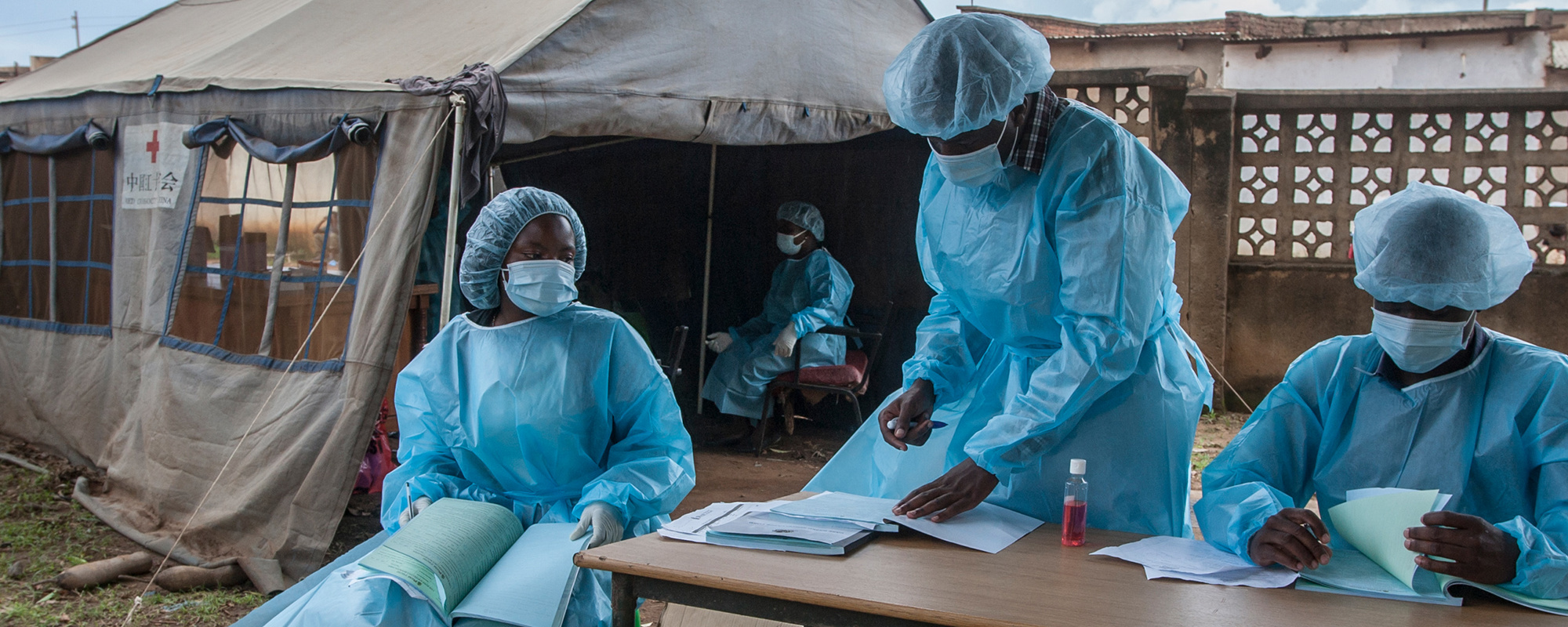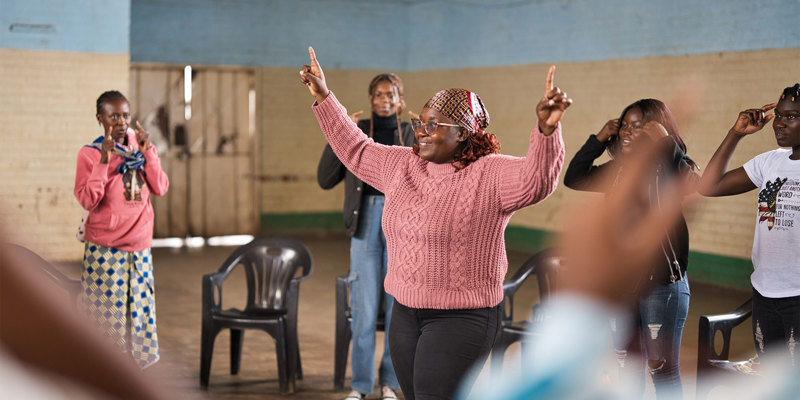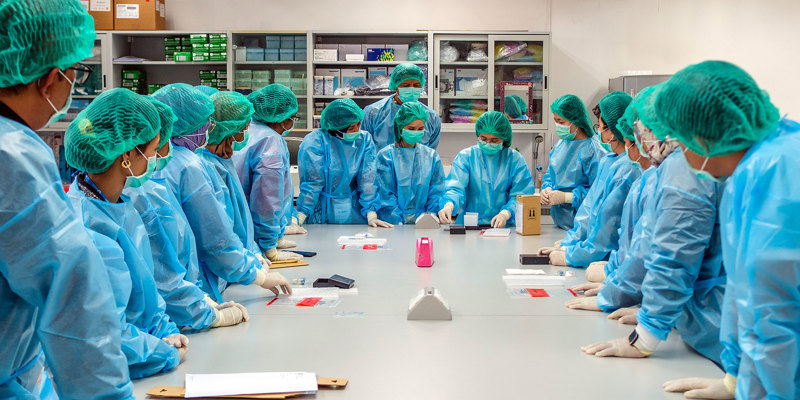

From Football Stadiums to Hospital Beds: Responding to COVID-19 in Malawi
For two months in early 2021, Bingu National Stadium in Lilongwe – the largest stadium in Malawi – was not a place for football. Instead, a devastating second wave of COVID-19 had overwhelmed hospitals and turned the stadium into a temporary field hospital to accommodate the flood of patients. But when the third wave of COVID-19 hit in June, thanks to grant support from the Global Fund, the country was in a stronger place to respond – and the national stadium was used for football, not hospital beds.
“After the second wave, we did prepare enough spaces – especially at the central hospital in Lilongwe – to accommodate cases,” explained Dr. Charles Mwansambo, Secretary of Health for Malawi. “When the third wave came, it found us very prepared, and we didn’t have to use field hospitals again, including the stadium.”
Looking back, Dr. Mwansambo reflected on how Malawi had to quickly adapt and respond to the second wave, which came towards the end of December 2020. “This wave came very aggressively, and we had to open up some new, untraditional centers to deal with the surge.”
As COVID-19 spread through Malawi and the number of cases rose, demand for hospital beds suddenly exploded. Queues of patients were being treated in the waiting room seats, because there were no more beds to accommodate them. It became evident that the hospitals could not cope with the sudden surge, and they had to act quickly to avoid the worst-case scenario.
In Blantyre, Malawi’s second-largest city to the south, the government opened a field hospital comprised of tents within the central hospital grounds. But in the populous capital Lilongwe, the cases were rising too quickly. The police, the army, and the hospital staff helped to set up a structure in the national stadium. In the lower levels of the stadium, rooms were set up with around 200 beds.
“The moment we opened the field hospital in the stadium, it helped us immediately because no more patients were waiting in their chairs to be given oxygen, they were actually going straight to their allocated spaces in the field hospital,” remarked Dr. Mwansambo.
When the second wave subsided, Malawi started to prepare for the next one, which it knew would come. With funding from the Global Fund’s COVID-19 Response Mechanism (C19RM), the country built and renovated some of the health facilities and infrastructure needed to respond to the pandemic. C19RM funding also supported the recruitment of health care workers that were desperately needed to alleviate the staff shortages at the overwhelmed health facilities, and the procurement of personal protective equipment (PPE) to protect them.
The Global Fund, the Access to COVID-19 Tools (ACT) Accelerator, and partners – like the Africa Centres for Disease Prevention and Control (CDC) – bolstered Malawi’s testing capacity through the procurement of critical diagnostic products including polymerase chain reaction (PCR) tests and rapid antigen rapid diagnostic tests (Ag RDTs). Malawi also relied on GeneXpert machines, used for TB and HIV diagnosis, to test for COVID-19.
The Global Fund is working with Malawi to support oxygen systems too, including through the procurement of oxygen cylinders and concentrators and the installation of oxygen plants, such as the one built in Mzuzu in northern Malawi that will serve the city’s central hospital as well as surrounding district hospitals in the region.
Malawi is also using C19RM funding to adapt HIV, TB and malaria programs to ensure service delivery and access throughout the COVID-19 pandemic. Some of these adaptations included introducing mobile HIV services for underserved populations, dispensing HIV medicines for multiple months at a time, testing for both TB and COVID-19 simultaneously, increasing TB testing capacity, and strengthening community-led risk communication and monitoring activities.
Investing in facilities, improving human resources, and ensuring an oxygen infrastructure all contribute to strengthening systems for health, so that countries like Malawi can effectively respond to COVID-19 but also to other infectious diseases like HIV, TB and malaria. “Even after COVID-19 – we are getting ready for any other emergencies that will come in the future,” said Dr. Mwansambo.







